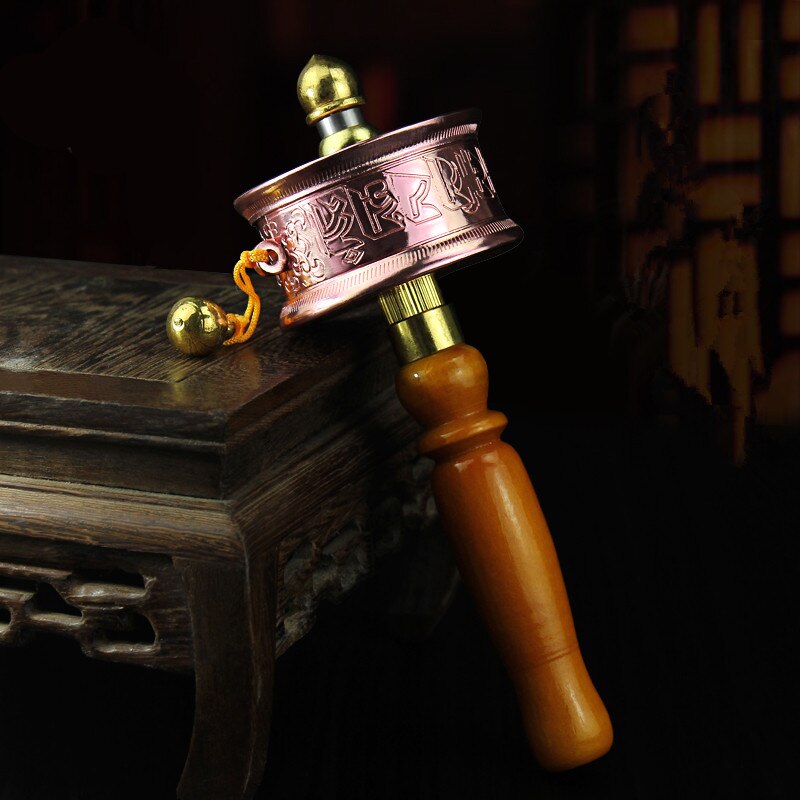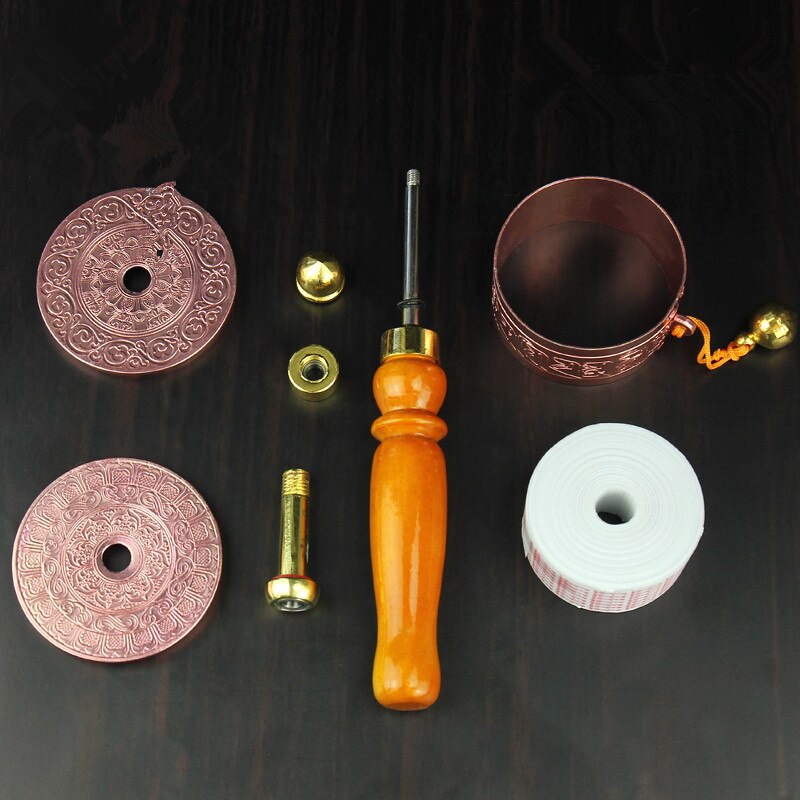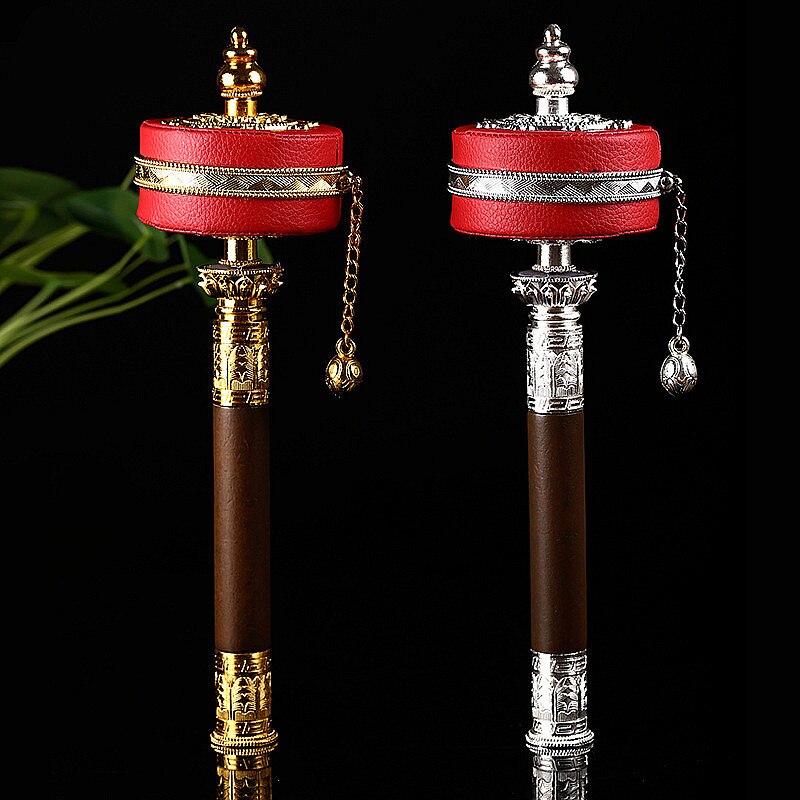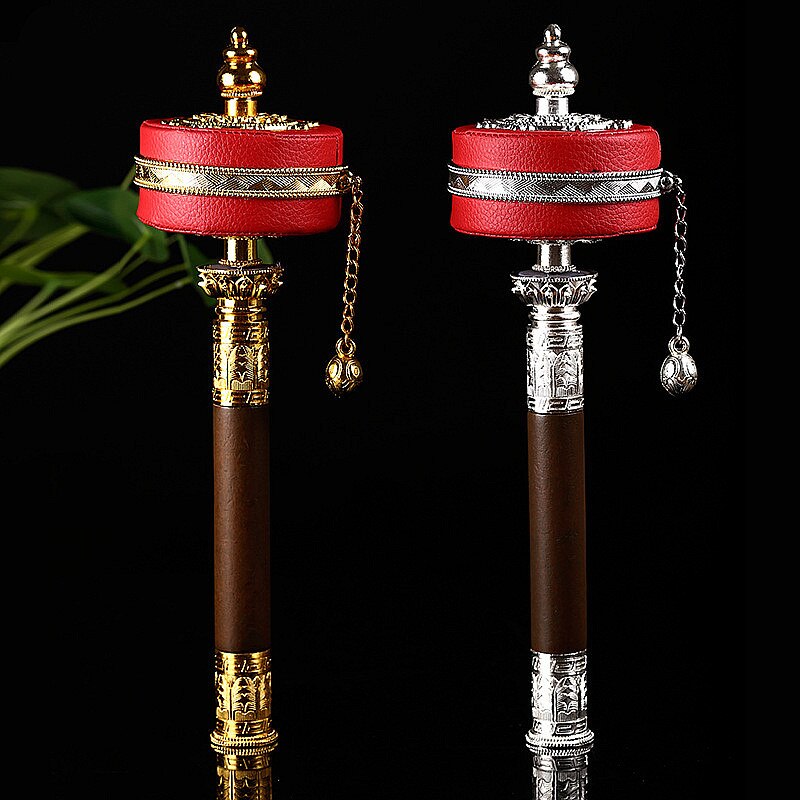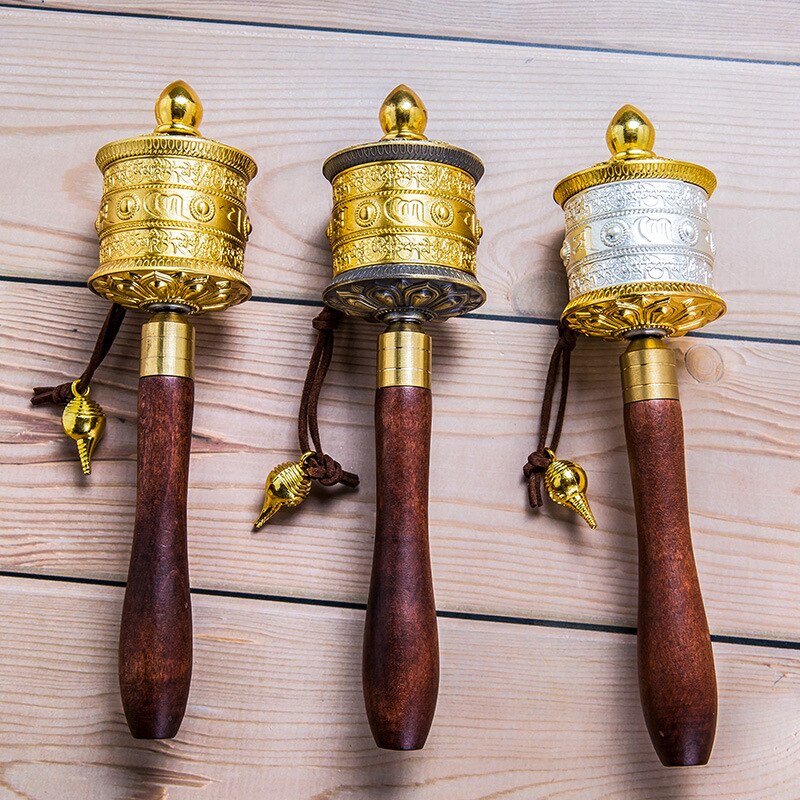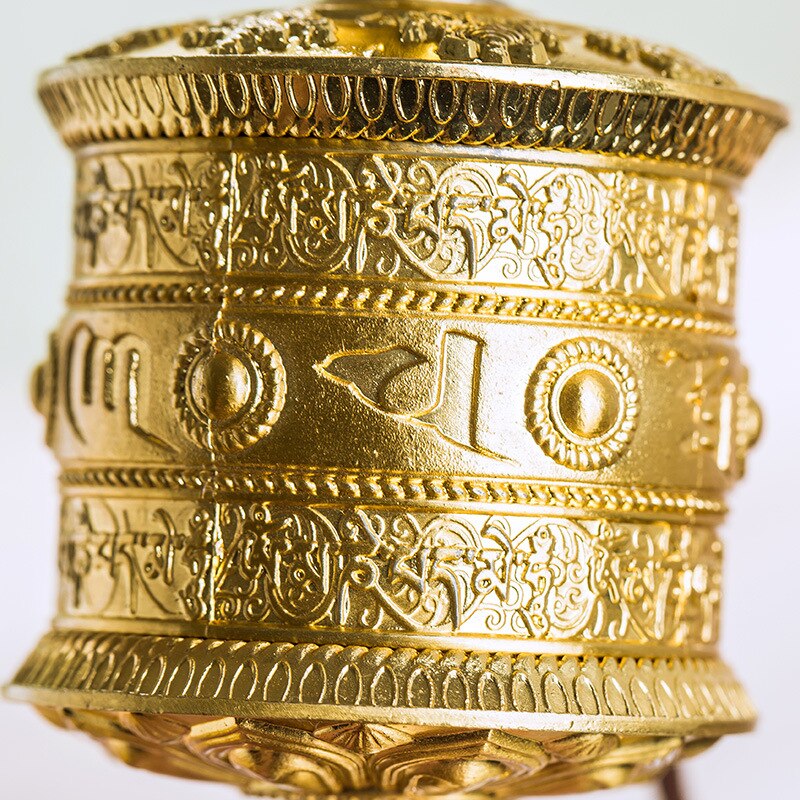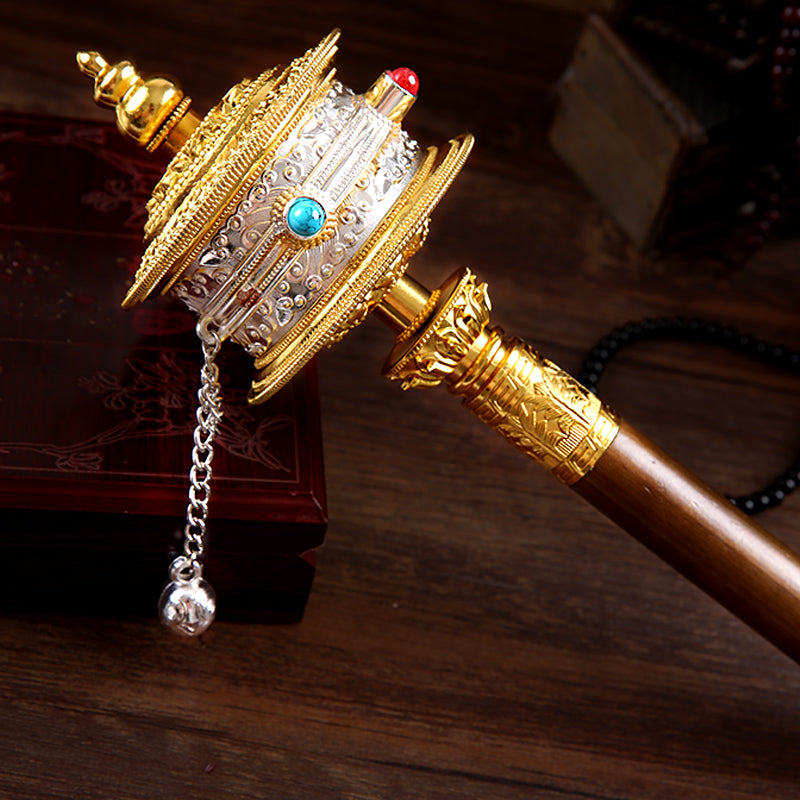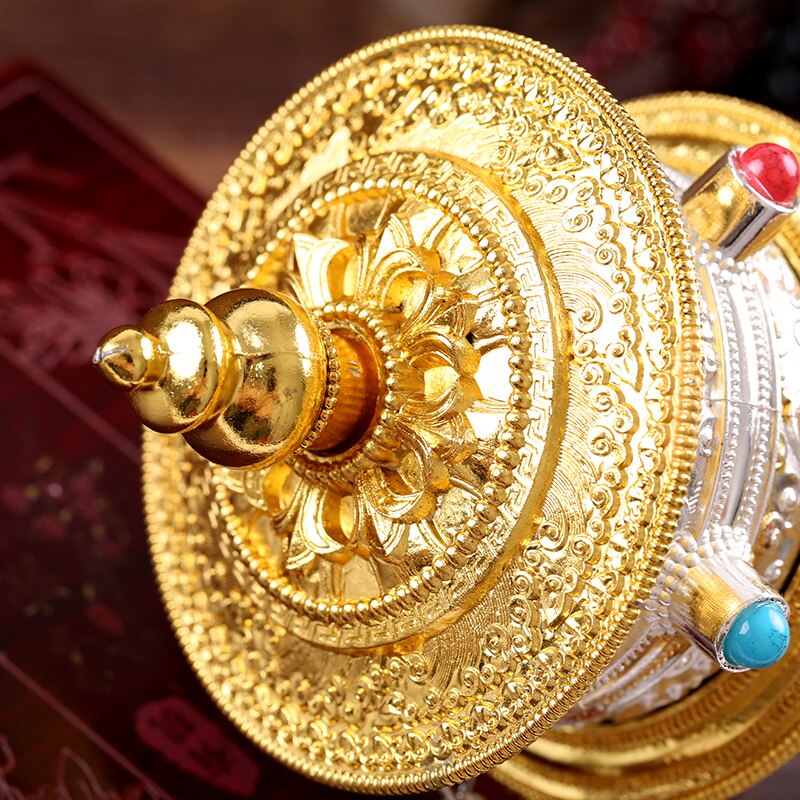Your Cart is Empty
🙏 La livraison est offerte sur tous vos achats ! 🙏
🙏 La livraison est offerte sur tous vos achats ! 🙏
🙏 La livraison est offerte sur tous vos achats ! 🙏
Notre site est chiffré de bout en bout par un protocole SSL et les paiements sont sécurisés via Stripe
Nous offrons la livraison sur tous nos produits partout dans le monde. (Hors DOM-TOM)
Vos commandes sont validées & préparées dans les 24 à 48 heures qui suivent vos achats.
 Livraison Offerte
Livraison Offerte
€119,99 €125,99 You Save 4% (€6,00)
Collections: Prayer wheel
Tibetan prayer wheels are handled by many practitioners every day on top of the world, frequently for hours. The worshipers turn the prayer wheels to accumulate consecration, to relieve all humans and to purify their chakra.
According to the Grand Master Dalai Lama, "To the reward of sentient beings, the Buddhas and Bodhisattvas declare themselves in a Golden Copper Six Syllables Prayer Mill to cleanse all of our negative chakras and our confusions, and to lead us to actualize the completions of the path to enlightenment. ”
Spinning a Golden Copper Six Syllable Prayer Wheel with countless mantras within it is like spreading those hundreds of mantras, but it is done in the blink of an eye. Multiplication of benefits is also gained with the help of prayer wheels driven by wind and water. Therefore the wind or water which touches with the prayer wheel will be consecrated by the prayer wheel and will thus be able to crown all that it touches of corrupting karma.
We often see practitioners making their pilgrimage with prayer wheels in their hands, or as part of their pilgrimage, they spin a Golden Copper Six Syllables Prayer Mill in the monasteries and Buddhist centers they explore.
At each turn of the Six Syllables Golden Copper Prayer Mill, the Buddha, whose mantra is written there, sprang from the wheel in entities as multiple as the mantras. In this way, if there are a thousand Manjushri mantras contained in the Golden Copper Six Syllables Prayer Mill, then one hundred Manjushri exhalations will be performed on each turn of the Golden Copper Six Syllables Prayer Mill and enjoy to the beings of the world.
Nonetheless, the benefits of spinning the wheel of the Six Syllables Golden Copper Prayer Wheel with a vigilant mind are believed to be a billion times greater than spinning it with a pensive thought.
A Golden Copper Six Syllables Prayer Wheel is an illustration of Buddhist technology. This tool allowed monks to amplify the number of prayers they recited by countless numbers.
Indeed, the Six Syllables Golden Copper Prayer Mill is filled with replicas of mantras like that of Avalokiteshvara the mantra om mani padme hum. The mantra is noted on silk sheets so many times as conceivably, sometimes millions. The soap opera is belted on an axle and included in a safety cylinder.
For a long time, the microfilm process has made it possible to evoke hundreds, if not hundreds of millions of prayers in one rotation.
The size of the prayer wheels fluctuates from the modest hand-supported wheel through the large wheel screwed into the enclosure of a building, like a gyratory base
The wheels are designed to be set in motion on purpose, by a gust, rain or a blaze. When they are included in a monument, people go around the building in a clockwise direction and spin the mills as they pass. Therefore, they enjoy the benefit of avoiding the sacred monastery and receiving the benefits sent by the Golden Copper Six Syllables Prayer Wheel.
The prayer wheels are built in a few sizes: they can be small and attached to a stick or pole, and turned voluntarily; medium in size and built in buildings or apartment buildings, or oversized and set in perpetual motion using a water mill. But the small Six Syllables Hand-Gilded Copper Prayer Mill are by far the most visible.
Merely touching and flipping a Golden Copper Six Syllables Prayer Wheel bestows astonishing purification and gathers unimaginable merit. We imagine that the more mantras we offer, the more merit we gain, which increases our possibilities of enjoying a higher reincarnation and ultimately reaching nirvana.
Touching or rotating the Golden Copper Six Syllables Prayer Wheel is considered to be so effective that this power is compared to that of thousands of practitioners praying a lifetime.
One of the favors of the Six Syllables Golden Copper Prayer Mill is that it symbolizes all the steps of the Buddhas and Bodhisattvas of the 10 directions. For the benefit of Men, Buddhas and Bodhisattvas show themselves in the prayer wheel to purify all of our corrupting karma and obscurations, and to force us to actualize the achievements of the path of enlightenment.
Prayer through the Golden Copper Six Syllables Prayer Wheel is believed to attribute whatever a Buddhist desire.
It is strongly believed that twirling the Golden Copper Six Syllables Prayer Wheel reproachfully and wrongly will help you exclude the four evil deeds, the five actions of immediate retribution, the eight evil views not to mention the ten non-virtues .
Anyone who spins the Golden Copper Six Syllables Prayer Mill during their lifetime should never be born with abnormalities again during their lifetime, nor with disabilities such as blindness, deafness, dumbness or infirmity.
Prayer wheel: Mani wheel (a hand-held prayer wheel)
Prayer wheel: Water wheels (turned by flowing water)
Prayer wheel: Fire wheel (turned by the heat of a candle or an electric light)
Prayer wheel: Wind wheel (a kind of prayer wheel turns thanks to the wind)
Prayer wheel: Fixed prayer wheels
Prayer wheel: Electric Dharma Wheels (powered by electric motors)
Spinning this Golden Copper Six Syllables Prayer Mill and declaiming is considered one of the most thoughtful and favorable approaches. Usually built on the edge of stupas and temples, a number of Buddhist prayer wheels can be counted in the thousands for Buddhists to spin as they pass by or around monuments or stupas in the city. clockwise.
A famous example of many prayer wheels on one site may be the famous Swayambhunath stupa, where many prayer wheels are built at the entrance to the huge Swayambhunath stupa.The precept to recite when rotating the Buddhist prayer wheels is: "OM MANI PADME HUM" or "OM MANI PEME HUNG"




